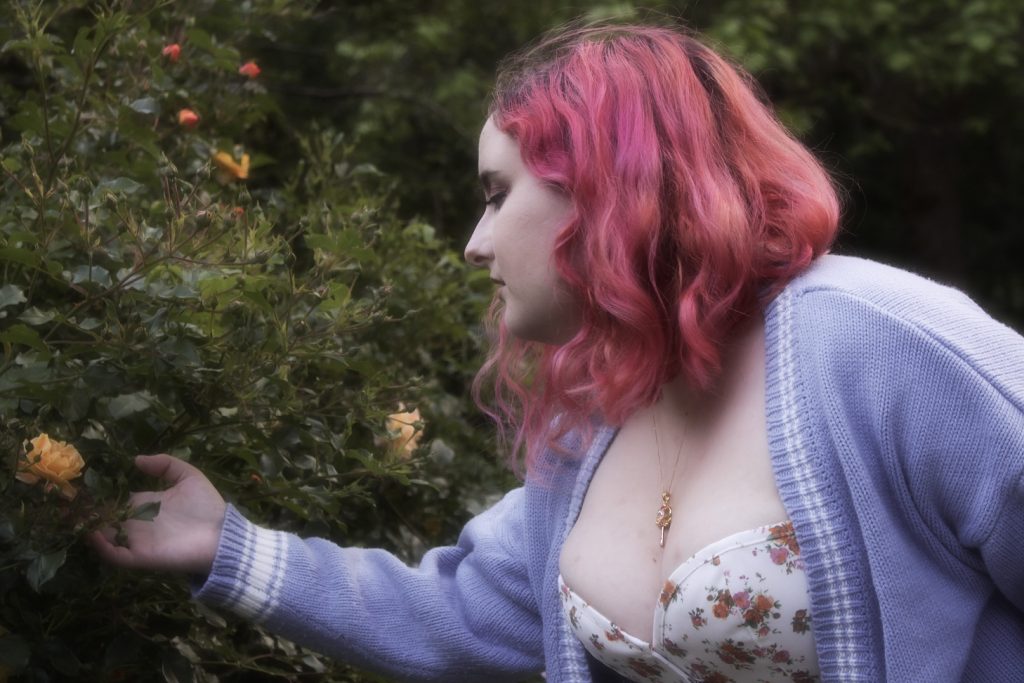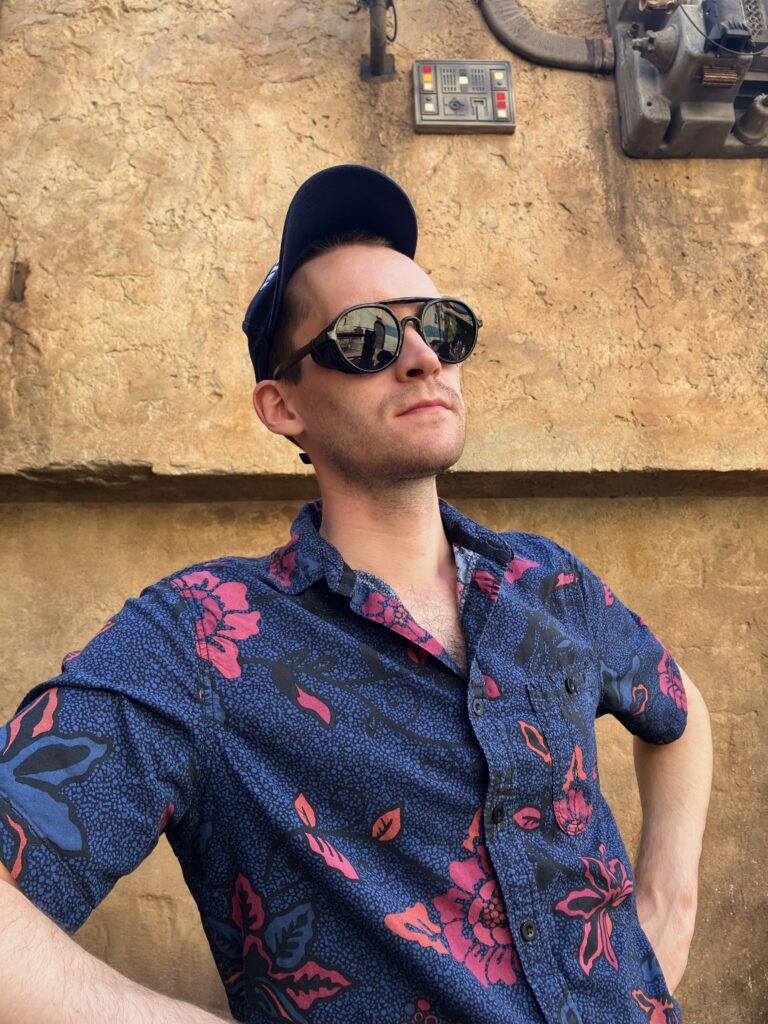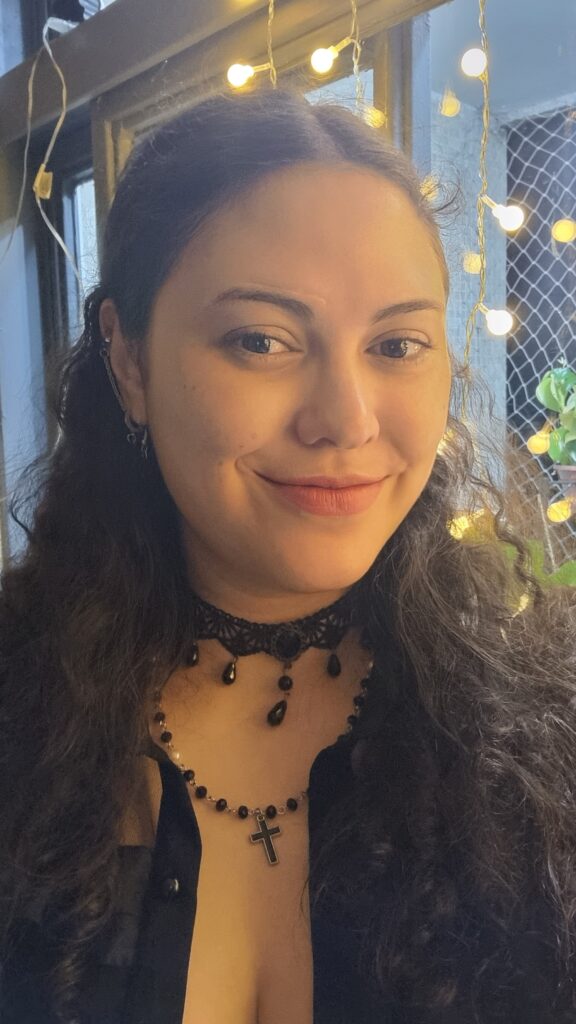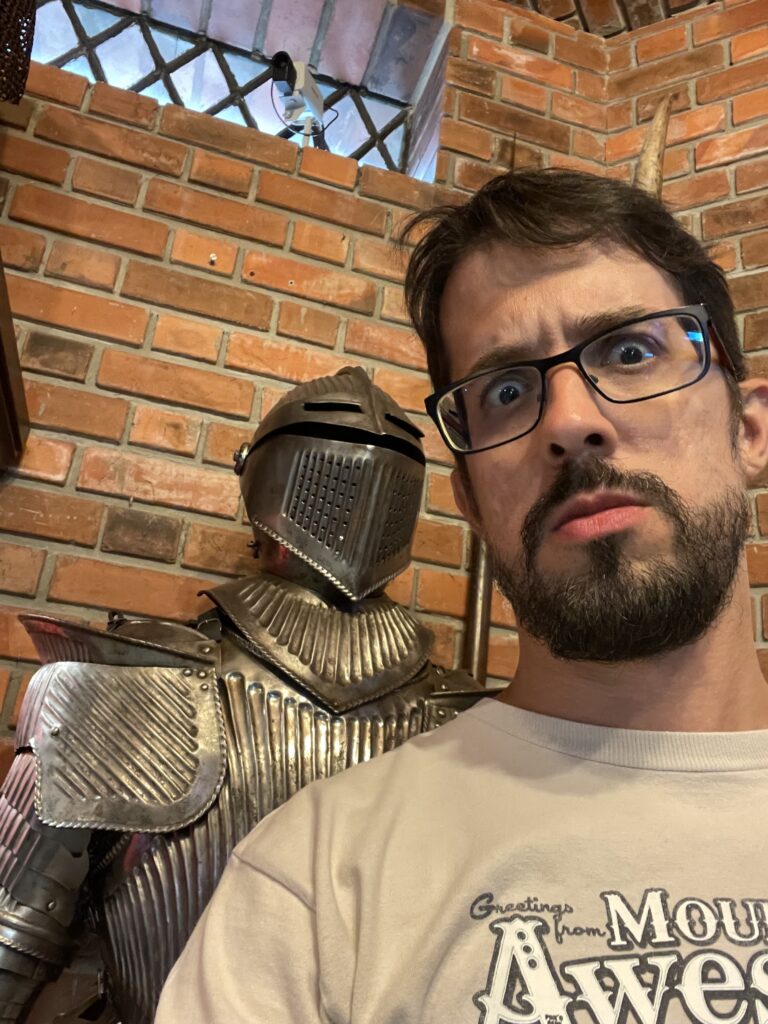edited by Chelle Parker
The deepfake is nothing like you. Its smile is all wrong. It’s recorded your dimple as an artifact and smoothed it over. Your smile is too symmetrical. It’s shortened your beaky nose. It winks at me from the computer screen with the wrong eye. It doesn’t squint when it smiles. It doesn’t dance like it’s missing a few tendons. It sings entire songs instead of its favorite couplet over and over again. It doesn’t tell me I should eat something, or remind me to call the landlord and fix the icemaker, or tell me about the article it just read on the intersections of Nietzche and Oscar Wilde’s philosophies.
***
The ChatBot is nothing like you. I gave them everything: emails, texts, your conference papers, every page of your meticulous diaries, the vows you’d written. Everything. It all comes out as pastiche and cliche. I had hope when it started its first message with a long ‘ummmmmmmmm’, but it’s all form, no content. It ends sentences without a period like your texts, and it asks trivial questions with three question marks and important ones with one. But when the conversation slows, it doesn’t change the subject so deftly that I don’t even notice. It “accidentally” produces internal rhymes at four times the rate of the average speaker, like you, but it doesn’t pause everything to think through the exact word it needs with me. And don’t get me started on its metaphors. It’s too short-winded. I asked it how its day was and it said, “Wonderful.” One word. I closed the browser and read a paper you’d written on literalizing the metaphors in Nietzche’s writing, and wished you were there to explain it all to me in a way I could understand but just barely.
***
The Voice Box is nothing like you. It has every voicemail I am lucky enough to have saved, every memo you recorded of yourself reading short stories so I could listen to them while I fell asleep, and your kitchen singing voice I recorded from the other room. The voice is right, but the inflections are all wrong. When it tells a joke, it doesn’t whisper the punchline. When it’s excited, it shouts, but it’s all crescendo and no build-up. It sings entire songs instead of its favorite couplet over and over again. You told me once, while we were staying up too late recounting petty childhood shames, that you bought a Tamagotchi from a flea market as a kid. You turned it on at midnight, when you were supposed to be asleep. It blasted music and you couldn’t figure out how to turn it off, so you ran to the garage and hit it with a hammer until it stopped beeping.
***
The robot is nothing like you. Its skin is too smooth. Its eyes are the wrong shade of blue. It doesn’t walk like you, popping onto the balls of its feet and stepping on tiptoes when it gets nervous or excited. It doesn’t get nervous during sunsets. It makes crafts too quickly, without pausing for an hour to consider which shade of green would be best for the resin lamp. It doesn’t stare up and to the left when it is lost in thought. It doesn’t get lost in thought. It doesn’t stop me midsentence and ask me to repeat myself because it wasn’t listening well enough. It’s not listening at all. It’s worse with it here than it was without you, and I thought nothing could be worse than being without you.
***
The holographically projected memory of you is nothing like you. Nothing it does surprises me. It will never get really into country music for three months because it heard a Dolly Parton remix in a nightclub. It won’t come home from a pet store with a chameleon because “just look at him; we can call him Hamlet.” My memories are nothing like you, either. They’re all incomplete or incorrect, and each time I conjure one, it loses more fidelity. You get smaller and simpler every day. I wake up in the morning and switch it on, and I can see, in reality-perfect resolution, how much of you I have lost since yesterday.
***
The 3D-bio-printed clone of you with implanted memories is nothing like you. It doesn’t tell me a story if I’ve already heard it. It doesn’t know that I don’t care how many times you’ve told me. It doesn’t ask me for anything. It doesn’t snore. It falls asleep too slowly and wakes up too quickly. It’s shaped like you. It feels like you when it hugs me while I cry. It tastes like you when it kisses me. It smells like you when its hair perfumes my pillow. It doesn’t matter. It doesn’t hug me asymmetrically with one arm always higher than the other and its hand on the nape of my neck. It doesn’t murmur for fifteen minutes when it first falls asleep. It never taps its forehead for a second kiss after the first one.
***
Your Frankensteined corpse is nothing like you.
***
The you pulled from a parallel universe where you didn’t die is nothing like you: She’s alive and likes Elvis.
***
The better deepfake with your dimple intact is still nothing like you.
***
Your ghost, which I imagine sacrificing a crow to summon, is nothing like you. Move on, you mouth to me silently, translucent and pitying. I don’t want to.
***
The pictures of you are nothing like you. The voicemails are nothing like you. The cat you got us two years ago is nothing like you. We both miss you. I cry, and she sits on my chest and paws at my collarbones. The empty half of our bed is nothing like you. The video of our wedding ceremony—the first one, on the beach with just our siblings, on that perfect, clueless Tuesday—is nothing like you. There is nothing like you. Oh god, there is nothing like you.
***
The kettle sang today, and for a fraction of a second, I thought it was your voice coming from the kitchen. I didn’t throw the kettle out, which I think is what my therapist would call progress.
***
I saw the first clear pictures of the Cosmic Cliffs from the James Webb telescope today. I don’t know why, but I thought of you. It’s a place in the universe where stars come churning to life. It’s light-years wide, and they look like mountains—ethereal, twinkling mountains. I wish you could see them, and they remind me of you.
***
I went to the aquarium today, for the first time since you died. The sleeping octopus they said had just escaped its tank last week reminded me of you. I didn’t look at the eagle rays, because they were your favorite, and I’m not ready. But I thought of you in all that blue, and it made me smile.
***
The scenic overlook at the end of the hike I went on today reminded me of you. I could see far enough to spot the line where the trees turned to streets, roads, and freeways. I thought of you because there was a stroad—one of those ungainly half-road, half-street banes of urban planners that you ranted to me about when you got really into urban planning that one summer. You set up a whole table in the garage to plan your “Unreal Utopia”, and you made foam buildings and read like a million books, and you told me you refused to have even one stroad in your utopia. When I asked what a stroad was, you started to explain, then asked if you could show me instead. I drove us down Route 82, and we slowed in the spots where the streets were eight wide lanes but they’d tried to line them with storefronts and a tiny empty sidewalk, too, and you said, “See? Stroad!” A month later, you tried to spray-paint your city and the paint melted the foam. The whole utopia dripped from the table and covered the ground. We laughed for months at random times, just thinking about it, and when we saw spray paint at a hardware store, we laughed so hard that the cashier asked us to leave. You quoted Nietzche in the car while I burned red with embarrassment. “Those who were seen dancing were thought to be crazy by those who could not hear the music.”
***
My bare-feet summer callouses remind me of you. A stand-up comic told a joke about Jersey girls, and it reminded me of you. The Asian grocery store had lychee, the kind you buy still on the branch, and I thought of you. I ate it on the couch. A police officer’s horse broke its leg near me on my walk, so I thought of Nietzche, so I thought of you.
***
The turnip bulbs rising from the earth again every spring remind me of you.
***
The couple at the movies who won’t stop whispering remind me of us.
***
The person who left anonymous flowers at my door is a bit like you, whoever they are.
***
Your mother’s laugh is a lot like yours. I finally visited her for coffee, and we laughed and cried and laughed until it was dark outside.
***
The deepfake company keeps emailing me, saying they really have it this time, and they’re willing to give me a 75% discount as an early adopter. I’m still saying no. You’re everywhere, really, except for the places I look hardest. So I’ve stopped trying, and I let you visit me when you can. I like it this way. I miss you all the time. I look at the scrapbooks of our trips—Paris, Chiang Mai, Florence, and Cusco—when I need something like your simulacrum.
***
There is nothing like you.
***
You are everywhere I look.
***
You colored the whole world. You chose the perfect shade, of course. You told me that the most important question Nietzche ever asked was about eternal recurrence. It was his test for whether someone actually loves life. The question goes like this: If a demon came to you and told you that you would have to live every single moment of your life over and over and over again, forever—each day, each second, each thought, each tragedy and laugh, each trauma and beauty, each stroad and inside joke, each diagnosis and bite of lychee, everything, always, again and again and again without change or adulteration—would you desire it? It’s a simple question, really, but it’s hard to answer.
I think about this all the time these days. If this all had to happen again, would I cry or celebrate? My answer, of course, is both. Do I desire it? Yes. I think so. I got you. I got so much of you, really. And after the end of everything, and at the beginning of everything, and in the middle of everything, and for all the endless recurrences that rise and break like perfect waves, I can say this with certainty: There is nothing, absolutely nothing, like you.
© 2024 by Spencer Nitkey
Author’s Note: This story was written in a strange way—even for me. My wife and I went to a coffee shop for a writing date, which involved sharing a coffee and then sitting at separate tables to write for an afternoon. I put Bon Iver’s song “Re: Stacks” on repeat and spent 3 hours in a kind of fugue state, thinking about my wife, love, and its shadow—loss. I’d just read an article on Nietzsche that morning and had been thinking about the paucity of tech simulacra like chatbots, ‘AI’, and the like. All this melded together, the language gathered some momentum, and poof, I walked out of the coffee shop dazed but with the first draft of this story in hand.

Spencer Nitkey is a writer, researcher, and educator living in New Jersey. His writing has appeared in Apex Magazine, Fusion Fragment, Apparition Lit, Weird Horror Magazine, and others. He was a finalist for the 2023 Eugie Foster Memorial Award for Short Fiction. You can find more about him and read more of his writing on his website, spencernitkey.com.
If you enjoyed the story you might also want to visit our Support Page, or read the other story offerings.







